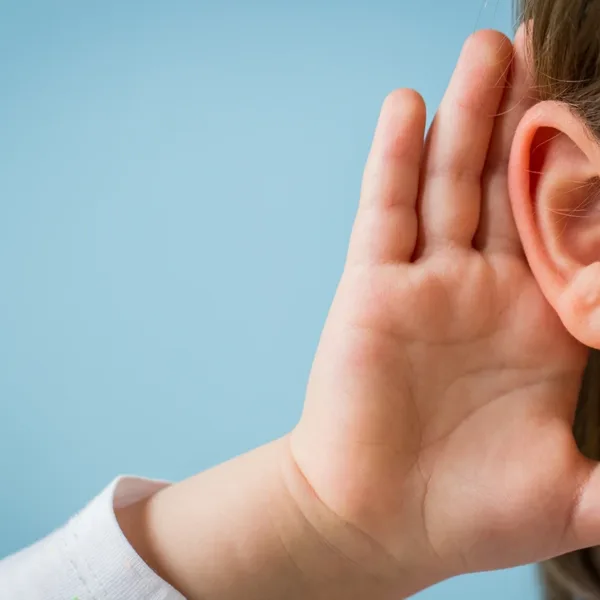
Sound plays a fundamental role in our connection to the world around us. Yet for many individuals, untreated hearing loss can silently erode the ability to communicate, engage, and experience life to the fullest. From strained relationships and diminished social interactions to professional disadvantages and cognitive decline, the consequences of untreated hearing loss are far-reaching and often underestimated. In this article, we explore the profound impact that untreated hearing loss can have on your quality of life and offer insights into the importance of early intervention.
The Impact of Untreated Hearing Loss on Daily Life
Untreated hearing loss is not merely a minor inconvenience; it has a profound impact on almost every aspect of daily life. Simple conversations with loved ones or coworkers can turn into frustrating ordeals, leading to misunderstandings or neglected responsibilities. From struggling to enjoy music, movies, or the simple sounds of nature to difficulties in understanding important instructions or warnings, untreated hearing loss casts a shadow over many daily experiences.
Communication
Verbal speech, tone, inflection, and other auditory cues play a vital role in communication. These elements work together to convey not only words but also the nuances of emotions and intentions. When hearing loss goes untreated, it disrupts this delicate balance.
Conversations become more challenging as vital auditory cues and even entire words are missed, leading to misunderstandings, strained interactions, and misinterpretations of emotions. This can make even casual small talk feel more like a puzzle with missing pieces, rather than a valuable way to connect with the people around you.
Work and Education

In professional environments, untreated hearing loss can lead to misunderstandings during meetings, affecting communication with colleagues and superiors. This, in turn, may hinder career advancement and limit one’s ability to contribute effectively to the workplace.
Similarly, in academic settings, understanding lectures and participating in classroom discussions can be difficult, potentially leading to lower academic performance. As a result, untreated hearing loss can have long-term consequences for educational achievement and future career opportunities.
Safety
The impact of untreated hearing loss on personal safety and the safety of others is far-reaching. Struggling to hear crucial auditory warnings such as sirens or alarms can lead to accidents or injuries. These auditory safety features indicate danger and allow us to act quickly to avoid it. Without proper treatment, the inability to hear approaching vehicles or horns can increase the likelihood of traffic mishaps. Likewise, the failure to hear alarms, phone calls, or doorbells could delay response times during emergencies.
Independence
Everyday tasks like making phone calls, driving, or following verbal instructions can become increasingly challenging as hearing loss progresses. Without interventions like hearing aids, self-sufficiency can quickly diminish, potentially limiting your ability to live on your own terms altogether.
Social Life
Difficulty in hearing and understanding conversations can cause frustration and withdrawal from social interactions. It may also put a strain on relationships with friends and family as it becomes increasingly challenging to communicate effectively. Over time, social isolation can become a common consequence, affecting the quantity and quality of social connections entirely.
Untreated Hearing Loss and Mental Health

Addressing hearing loss is not only crucial for improved communication but also for maintaining your overall mental and emotional well-being. This is because untreated hearing loss not only affects communication and social engagement but can also take a toll on mental health.
Stress
With compromised hearing, our brains are required to work overtime, attempting to process the sounds around us, and trying to fill in the gaps and missing pieces. The effort required to navigate daily these common communication challenges can have an exhaustive mental toll, and often results in heightened stress levels.
Depression
The daily challenges of untreated hearing loss can be exhausting and disheartening to navigate. Communication issues in social, personal, and professional settings, coupled with the potential for feelings of isolation and exclusion, can be considerable emotional stressors. Over time, this may lead to the development or exacerbation of depression.
Anxiety
The anxiety of misunderstanding vital information or missing out on conversations can make even casual talks stressful for individuals with hearing loss. Struggling to follow conversations or fearing misunderstandings can create stress and a sense of unease that can also contribute to heightened anxiety levels. This can interfere with everyday life and have long-term psychological effects, especially if hearing loss goes unaddressed for long periods of time.
Isolation
Communication challenges can lead to withdrawing from social activities as a means of avoiding emotions like frustration or even embarrassment. The gradual retreat from social interactions can result in feelings of isolation and loneliness, as connections with friends, family, and the community decline.
Low-Self Esteem
Losing a vital sense like hearing can have detrimental effects on anyone’s confidence. It can be disheartening to frequently ask people to repeat themselves or struggle to follow conversations. A sense of inadequacy or social awkwardness stemming from untreated hearing loss can contribute to a negative self-perception, impacting overall self-esteem and confidence.
Untreated Hearing Loss and Cognitive Decline

There is more to untreated hearing loss than preserving the health of your ears alone. Our auditory system plays a significant role in cognitive processes and when hearing loss goes unaddressed, it may contribute to accelerated cognitive decline. This can include issues related to memory, comprehension, and even an increased risk of conditions such as Dementia.
Mental Fatigue
Over time, struggling to hear and understand conversations, especially in noisy environments, can be mentally draining. When hearing loss goes untreated, our brains have to exert extra effort to make sense of all the sounds going on around us. This extra mental effort can lead to increased brain fatigue, impacting overall energy levels and cognitive functioning.
Memory Loss
According to a 2020 Lancet commission report, hearing loss is heavily correlated with memory loss and other essential brain functions. This is believed to be partially due to the reduced auditory stimulation reaching areas of the brain, such as the temporal lobe. Our brains need consistent stimulation to stay active and healthy. When we receive less input through our auditory system, important areas of the brain can start to weaken, impacting cognitive functions like memory.
Comprehension and Problem Solving
Clear communication is crucial for understanding daily situations. When hearing loss is not addressed, difficulties in following or understanding speech often arise. This makes it challenging to fully comprehend information and can hinder the ability to effectively process and analyze problems. Without all the necessary details, finding the best solutions becomes significantly harder.
Memory and concentration also play a vital role in our ability to think critically. Untreated hearing loss can often compromise these skills as well, making it challenging to navigate everyday problems.
Dementia
Research strongly suggests that untreated hearing loss is closely linked to a higher risk of conditions like Alzheimer’s disease and Dementia, especially in older adults. In fact, scientists at Johns Hopkins University of Medicine found that individuals with severe hearing loss were five times more likely to develop dementia.
Other recent studies indicate that older adults at high risk of dementia who use hearing aids may experience a nearly 50% reduction in the rate of cognitive decline. This, in turn, can lower the risk of developing dementia overall.
Don’t Let Untreated Hearing Loss Define Your Life – Take Control Today
Addressing hearing loss is not just about hearing better; it’s about preserving the richness of life itself. From communication difficulties and strained relationships to mental health challenges and increased risks of cognitive decline, hearing loss can affect nearly every aspect of our lives.
At Audibel, our team of hearing care specialists is dedicated to delivering personalized care, and hearing loss solutions crafted specifically for your needs, lifestyle, and budget. Take the first step towards enhancing your quality of life by finding a hearing clinic near you today.







Have a question or Comment?